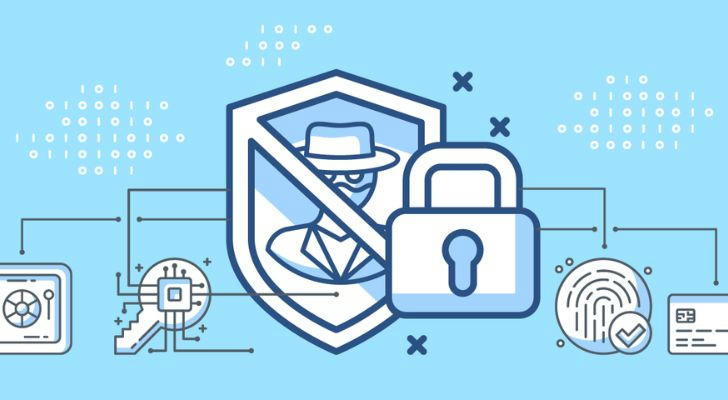How Much Would You Lose if You Fell for a Financial Scam?

The Scam Epidemic, What You Need to Know to Stay Safe
Have you ever received an email or message that seemed too good to be true? Or perhaps you've been tempted by an investment opportunity that promised unusually high returns? If so, you're not alone. Millions of people fall victim to financial scams every year, and the consequences can be devastating. But the question is, could it happen to you? Are you
confident that you could spot a scam from a mile away? Or are you unwittingly leaving yourself open to financial fraud? The truth is, financial scams are more sophisticated than ever, and even the most cautious among us can fall prey. So, what do you need to know to stay safe? And what are the warning signs you should be looking out for? Read on to find out.
Financial scams are a pervasive threat in our daily lives, and it's essential to be aware of the common tactics used by scammers to deceive innocent people. In this article, we will exploresome of the most common financial scams, including interest-free loans ,air ticket refunds, and high-interest investments, and provide tips on how to avoid falling prey to these scams.
Interest-Free Loans Scam
One of the most common financial scams is the interest-free loan scam. Scammers promise unsuspecting victims interest-free loans, which seem too good to be true. However, these loans often come with hidden fees and charges that can lead to financial ruin.
- Be cautious of loan offers that seem too good to be true.
- Always research the lender and read the fine print before signing any agreement.
- Be wary of lenders who ask for upfront fees or charges.
Air Ticket Refund Scam
Another common scam is the air ticket refund scam. Scammers promise to refund air tickets, but instead, they steal the victim's personal and financial information.
- Be cautious of unsolicited calls or messages offering air ticket refunds.
- Never provide personal or financial information to unknown individuals or companies.
- Always verify the authenticity of the caller or message by contacting the airline directly.
Pyramid (Ponzi) Scheme Scam
High-interest investment scams are also prevalent. Scammers promise unusually high returns on investments, which can be tempting to unsuspecting victims.
- Be cautious of investment opportunities that promise unusually high returns.
- Always research the investment company and read reviews from other investors.
- Be wary of investments that require upfront fees or charges.
Besides all above scam, there are several other types of financial scams that individuals should be aware of. Here are some additional examples:
Phishing scams involve scammers sending fake emails or messages that appear to be from a legitimate financial institution or company, with the goal of tricking victims into revealing sensitive information such as passwords, credit card numbers, or social security numbers.
- Identity theft scams involve scammers stealing personal information suchas social security numbers, driver's license numbers, or credit card numbers to commit financial crimes.
- Credit card scams involve scammers stealing credit card information to make unauthorized purchases or withdraw cash.
- Online shopping scams involve scammers creating fake online stores or websites to trick victims into making purchases or revealing sensitive information.
- Lottery scams involve scammers claiming that the victim has won a large sum of money in a lottery or contest, but the victim must pay a fee to claim the prize.
- Inheritance scams involve scammers claiming that the victim has inherited a large sum of money from a distant relative or friend, but the victim must pay a fee to claim the inheritance.
- Cryptocurrency scams involve scammers using fake cryptocurrency exchanges or wallets to steal cryptocurrency from victims.
- Social media scams involve scammers using social media platforms to trick victims into revealing sensitive information or making purchases.
- ATM scams involve scammers using fake ATMs or skimming devices to steal credit card information and withdraw cash.
- Fake job scams involve scammers offering fake job opportunities to trick victims into revealing sensitive information or making purchases.
- Student loan scams involve scammers offering fake student loan forgiveness or consolidation services to trick victims into revealing sensitive information or making purchases.

How to Avoid Financial Scams
To avoid falling prey to financial scams, it's essential to be vigilant and take necessary precautions. Here are some tips:
- Always research the company or individual offering the loan or investment opportunity.
- Read the fine print and understand the terms and conditions before signing any agreement.
- Be cautious of unsolicited calls or messages offering loans or investments.
- Never provide personal or financial information to unknown individuals or companies.
- Verify the authenticity of the caller or message by contacting the company directly.
Here are some specific tips to help students and seniors avoid falling prey to financial scams:
For Students:
- Be cautious of "too good to be true" offers: If someone promises you a high-paying job or a guaranteed scholarship with minimal effort, it's likely a scam.
- Verify the identity of the caller: If someone calls claiming to be from your bank or a government agency, hang up and call the organization back using a phone number you know is genuine.
- Don't share personal info online: Avoid sharing your social security number, birthdate, or financial information on social media or in response to unsolicited emails.
- Use strong passwords and 2-factor authentication: Protect your online accounts with strong passwords and enable 2-factor authentication to prevent hackers from accessing your accounts.
- Research before investing: Be wary of investment opportunities that promise unusually high returns. Research the company and its credentials before investing.
For Seniors:
- Be wary of unsolicited calls: If someone calls claiming to be from a government agency or a charity, be cautious. Legitimate organizations will not call you out of the blue asking for
- personal information or money.
- Don't give out personal info to strangers: Never give out your social security number, credit card information, or bank account numbers to someone you don't know and trust.
- Use a shredder: Shred any documents that contain personal information, such as bank statements or credit card offers, to prevent identity theft.
- Monitor your accounts regularly: Keep a close eye on your bank and credit card statements to detect any suspicious activity.
- Don't fall for "grandparent scams": If someone calls claiming to be a grandchild in trouble and needing money, verify the caller's identity by contacting other family members or the authorities.
It's essential to be aware of these types of financial scams and take necessary precautions to protect yourself from financial ruin. Always becautious and do your due diligence before making any financial decisions.
